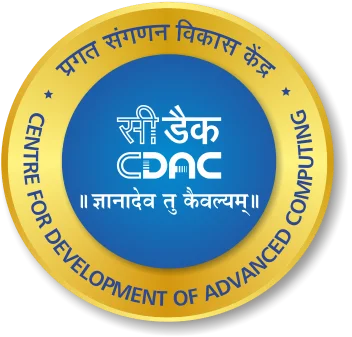The Indian Society of Geomatics (ISG) and the Indian Society of Remote Sensing (ISRS) have joined together to orchestrate a national symposium with a central theme of "Exploring the Geospatial Ecosystem, Trends, and Innovations”. This symposium's main objective is to explore, examine and highlight the rapid advancements in the field of Geospatial sciences and their numerous applications in areas of human needs, technological development, space exploration, Earth monitoring, and their practical uses.
In recent times, there has been a notable surge in the development, evolution and application of Earth observation technology and Geoinformatics. This rapid advancement has significantly broadened their purview and applicability, exerting a substantial influence across virtually all facets of human life and activities.
The primary objective of this symposium revolves around establishing a collaborative platform for professionals, educators, researchers, and students actively engaged in the domains of Remote Sensing, Geographic Information Systems (GIS), Artificial Intelligence (AI), and Deep Learning algorithms, along with their practical implementations. This platform is envisioned to foster the exchange of knowledge, sharing of ideas, and sharing of experiences pertaining to the latest breakthroughs and challenges encountered in various domains. The symposium will facilitate comprehensive discussions, deliberations, and presentations that encompass emerging concerns, state-of-the-art technologies, inventive methodologies, and the tangible implications associated with Earth observation and Geospatial sciences


Indian Society of Geomatics (ISG), established in 1993, is a premier society of professionals and institutions involved in promoting and popularizing Geomatics in India. It was formed by a group of professionals from government, academia, and industry with the main objective of promoting the technology and applications of Geomatics so that it becomes an important part of the information management and decision making processes. It has 26 very active Regional Chapters located at Ahmedabad, Ajmer, Bhagalpur, Bhopal, Chennai, Dehradun, Delhi, Hisar, Hyderabad, Jaipur, Jammu and Kashmir, Kharagpur, Lucknow, Ludhiana, Mangalore, Mumbai, Mysore, Nagpur, Pondicherry, Pune, Ranchi, Surat, Shillong, Trichy, Trivandrum, Vadodara and Visakhapatnam.

Indian Society of Remote Sensing (ISRS) was established in 1969 as "Indian Society of Photo-interpretation”, with not for profit scientific society having the main objective of advancement and dissemination of remote sensing technology and education by conjunctive use of remote sensing with conventional methods in the fields of survey, planning and management of natural resources and environment by organizing seminars/ symposia and by publishing journal, bulletins, proceedings, etc. The Society has been organising annual conventions and national symposia regularly since 1981, giving opportunities to the remote sensing community in the country to present their papers and discuss the problems and methods of applications of remote sensing in development and management of resources. The Journal of the Society, JISRS, monthly publication, is the only journal in the country exclusively dealing with remote sensing technology and its applications.

Symbiosis International (Deemed University), founded in 1971 by Prof. Dr. S.B. Mujumdar, is a multidisciplinary institution with a focus on a multicultural and innovative learning environment. Based on the Vedic thought of "World is One Family," the university fosters a mutually beneficial relationship with international students, representing over 85 countries. With campuses in four Indian states and six cities, Symbiosis upholds its vision of promoting global understanding through quality education.
Symbiosis Institute of Geoinformatics (SIG) is constituent of Symbiosis International (Deemed University) and imparting education and research in area of Spatial Science, Geo intelligence and data analytics in India. SIG offers master courses in these areas of technologies.

Centre for Development of Advanced Computing (C-DAC) is the premier R&D organization of the Ministry of Electronics and Information Technology (MeitY) for carrying out R&D in IT, Electronics and associated areas. The setting up of C-DAC in 1988 was to build and has been undertaking building of multiple generations of Supercomputer starting from PARAM with 1 GF in 1988. Different areas of C-DAC, had originated at different times, many of which came out as a result of identification of opportunities towards building a technologically advanced country (www.cdac.in)
